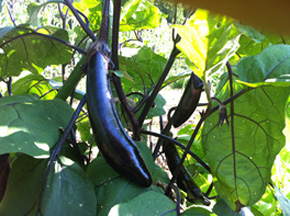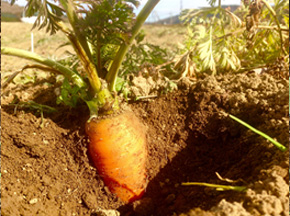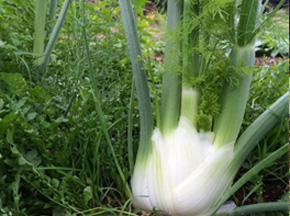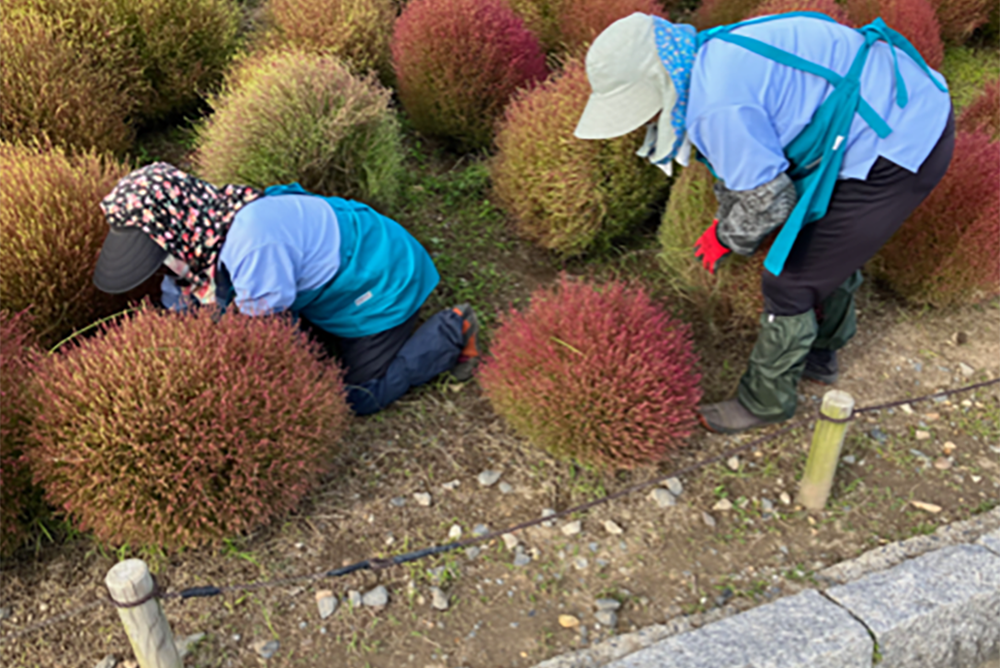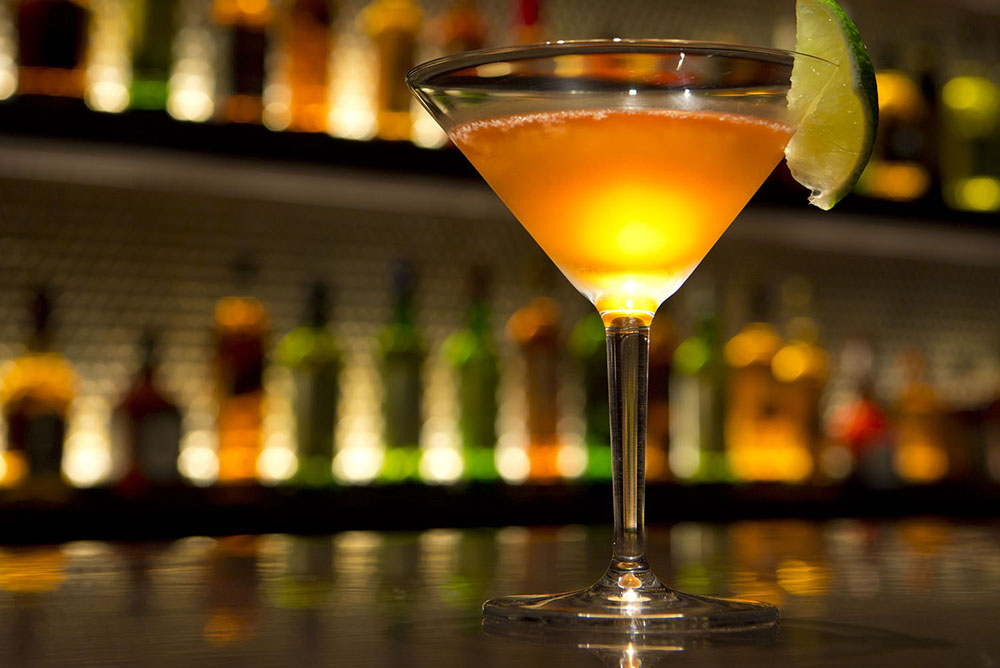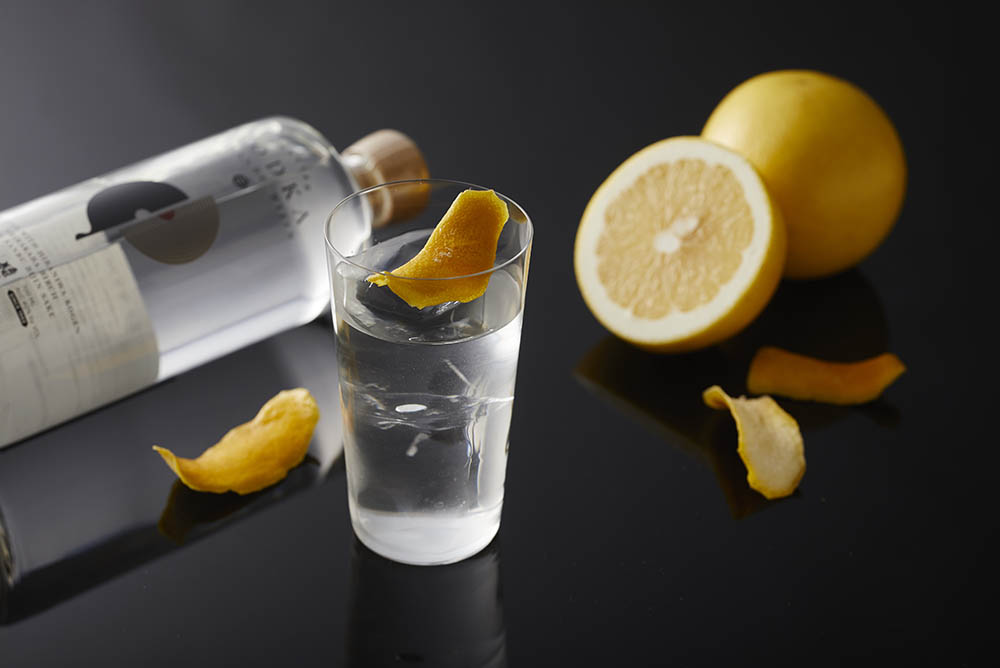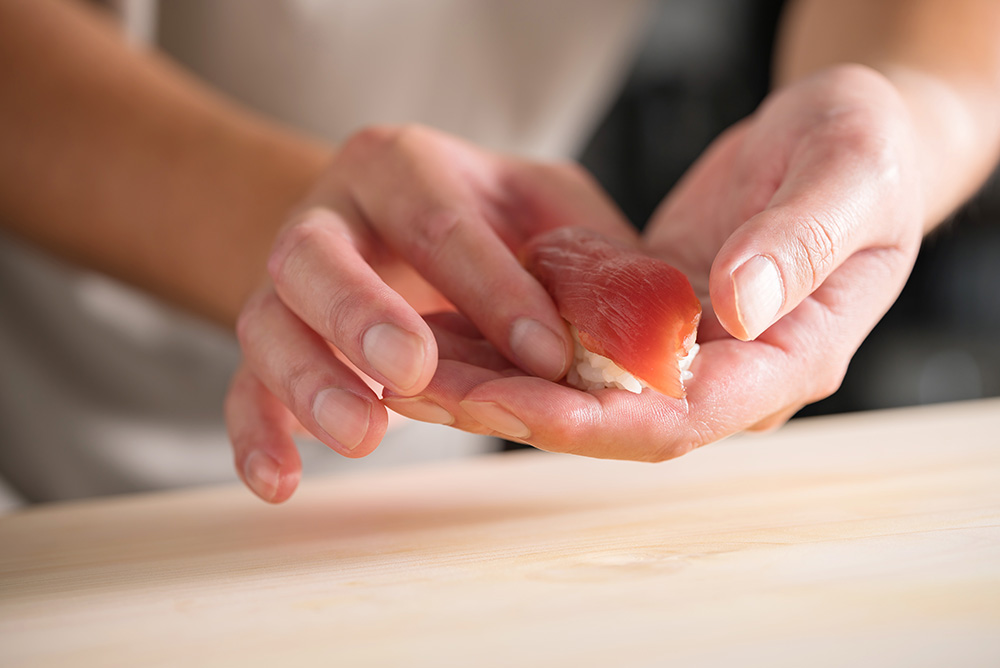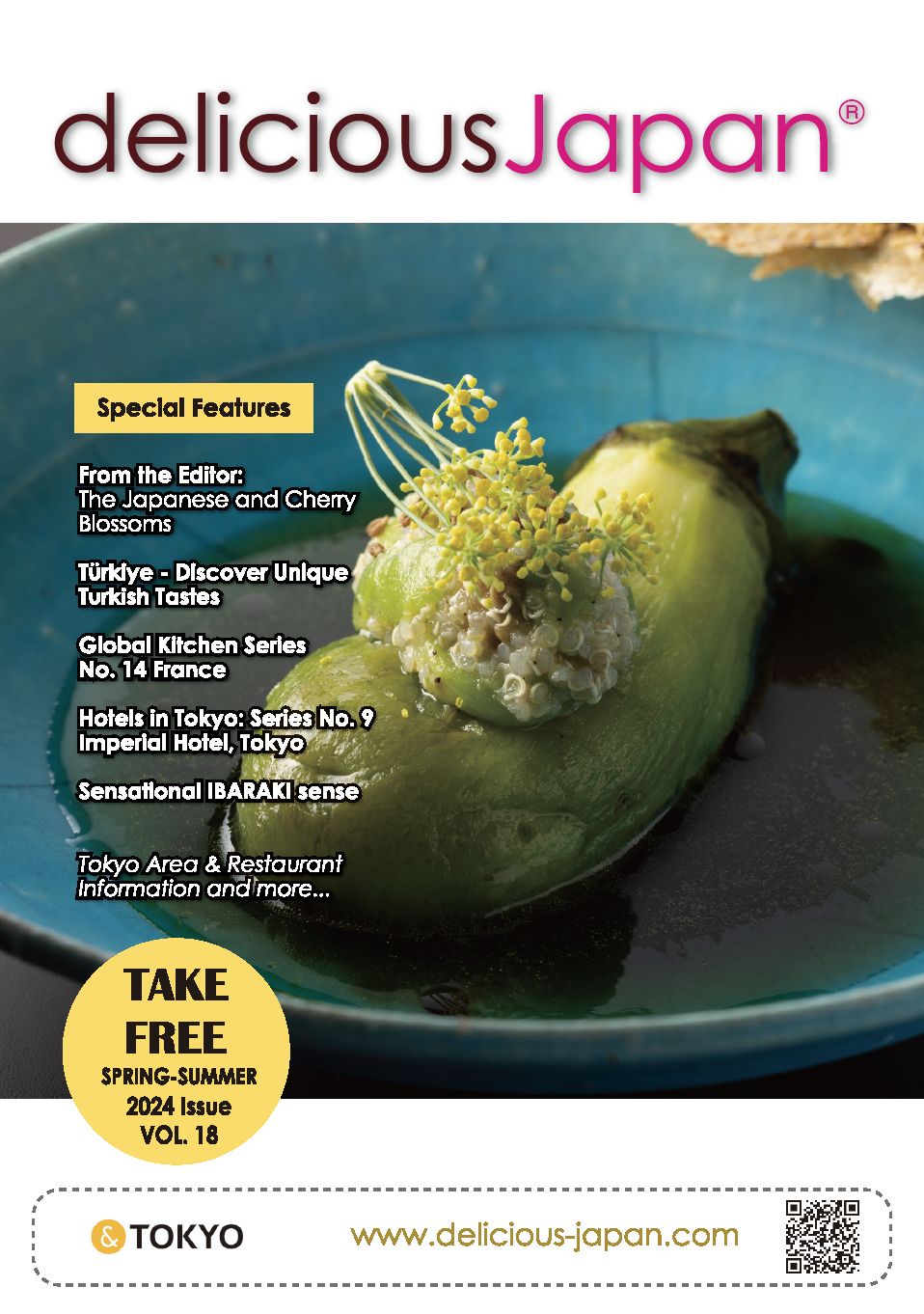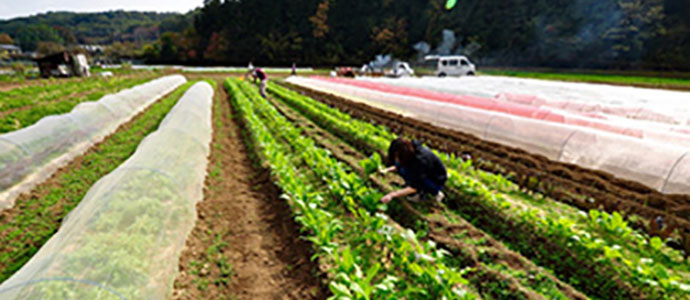
T.Y.FARM: Be Local, Live Organic
Interview with Akihiro NONAKA
Please tell us about the background of your agricultural unit T.Y.FARM and its purpose.Japan has the highest amount of food waste in the world, while its food self-sufficiency rate is about 40%. Concerned by the increasing number of agricultural products and other foods gone to waste every year, Warehouse TERRADA started a project in the primary industry and named it T.Y.FARM. This agricultural project began in April 2015, focusing on the potential of agriculture in Tokyo metropolis. T.Y.FARM has the following three purposes.
As Warehouse TERRADA, we provide “high-value added service” in our preservation and storage business. We wanted to challenge ourselves in our agricultural business by pursuing high quality organic agriculture and environmental conservation that meet global standards.
In addition to our group company, TYSONS & COMPANY, we distribute the vegetables to bakery using special ingredients, washoku restaurants putting emphasis on dashi (Japanese soup stock), marche, and department store events.
Tell us about the interraction between T.Y.FARM and Warehouse TERRADA?Warehouse TERRADA has stepped out of the warehouse industry’s framework of simply “keeping things” and developed a “preservation” business under the best conditions, understanding the real nature of the item that is being preserved. We are getting high evaluations of preserving artwork, video and music media, wine, and highly specialized items such as architects’ models. Through these businesses, we have been working on “town planning” putting emphasis on the city of Tennouzu. For T.Y.FARM, spatial designing does not only mean to create scenery of the land through agriculture, but also to preserve the original scenery. In this way, we believe that a new style of town planning will be realized.
Does your group company TYSONS & COMPANY in the food service industry propose anything particularly aimed at foreign visitors? Or do you have a certain service or menu such as gluten free?TYSONS & COMPANY have English menus and English speaking staff (some speak Chinese). It depends on the restaurant, but they have gluten free menus, menus for people with allergies, and vegan menus.
Food allergies including gluten are getting more attention in Japan. How do you look at, for instance, gluten free and do you do anything to meet these demands?We have just started our gluten free project but we’re working hard on it. We’re right in the middle of creating a healthy farm and we’re planning to open shops directly linked to our farms in the future. Most of our staff have tried a gluten free diet and they are exchanging ideas about their experiences.
What do you do for promotion and branding of your vegetables?Not only we sell our vegetables at Kabukiza and Matsuya Ginza, but we also try to convey the background stories of cultivation and production, putting an emphasis on communication of information and participation in special events.
Do you participate in food exhibitions or have plans on exhibiting in future?We don’t plan on exhibiting but would like to consider it if there were a good chance.
Do you have any additional comments?We would like to make most out of the regional resources of O me City and work on agriculture that promotes environmental conservation. By forming a community, we want to stress the potential of agriculture in Tokyo as much as possible. Although we feel that decreasing farms and increasing number of imported vegetables are a threat to Japanese agriculture, doing agriculture in Tokyo has a charm that no other regions in Japan have. As a metropolis, we want to value the connection with the local community including farms. We will discover new added value of Ome City by utilizing positive regional features such good access from center of Tokyo to rich nature, and local recruitment through agricultural projects.
